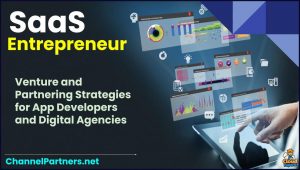Why Vertical LLM Agents Are The New $1 Billion SaaS Opportunities
The Intersection of Ai and Vertical SaaS Presents a Hyper Growth Sweet Spot for App Entrepreneurs.
 In the realm of software as a service (SaaS), a ‘vertical SaaS’ refers to a specialized type of cloud-based software that caters to the needs of a specific industry or niche market.
In the realm of software as a service (SaaS), a ‘vertical SaaS’ refers to a specialized type of cloud-based software that caters to the needs of a specific industry or niche market.
Unlike horizontal SaaS solutions that target a broad range of industries, vertical SaaS focuses on addressing the unique requirements of a particular vertical, such as healthcare, real estate, or legal services.
Vertical Ai
This is an especially potent approach when combined with the opportunity for Ai SaaS ventures.
Bessimer writes that the meteoric rise of these businesses over the past 15+ years and the advancements in AI during that same period has set the stage for an exciting new development in the vertical software landscape: Vertical AI.
This all came to a head in 2023, when we saw a new class of LLM-native applications harnessing novel business models and AI capabilities in order to serve functions and even entire industries that didn’t meaningfully benefit from the previous wave of vertical software.
Unlike their predecessors, these vertical AI applications are able to target the high cost repetitive language-based tasks that dominate numerous verticals and large sectors of the economy — such as legal, healthcare, and finance — that were largely out of bounds for legacy vertical software.
Given Vertical AI’s ability to both capture new markets and tap into more sizable TAMs within those markets, they predict that Vertical AI represents an even larger market opportunity than that of legacy vertical SaaS.
As LLM’s become exponentially better it is clear that vertical AI agents are key to the next generation of billion dollar SaaS companies. In this episode of the Lightcone, the hosts sit down with YC alum Jake Heller, the co-founder and CEO of Casetext (which sold to Thomson Reuters for $650 million in cash in 2023) to discuss what it takes to build a successful vertical AI company and overcome resistance from industry veterans and skeptics.
Conclusion
In conclusion, the market opportunity for developing SaaS startup ventures in the field of Artificial Intelligence is vast and promising. By understanding the market dynamics, addressing key considerations, and offering innovative AI solutions through the SaaS model, startups can carve a niche for themselves in this rapidly evolving landscape.



